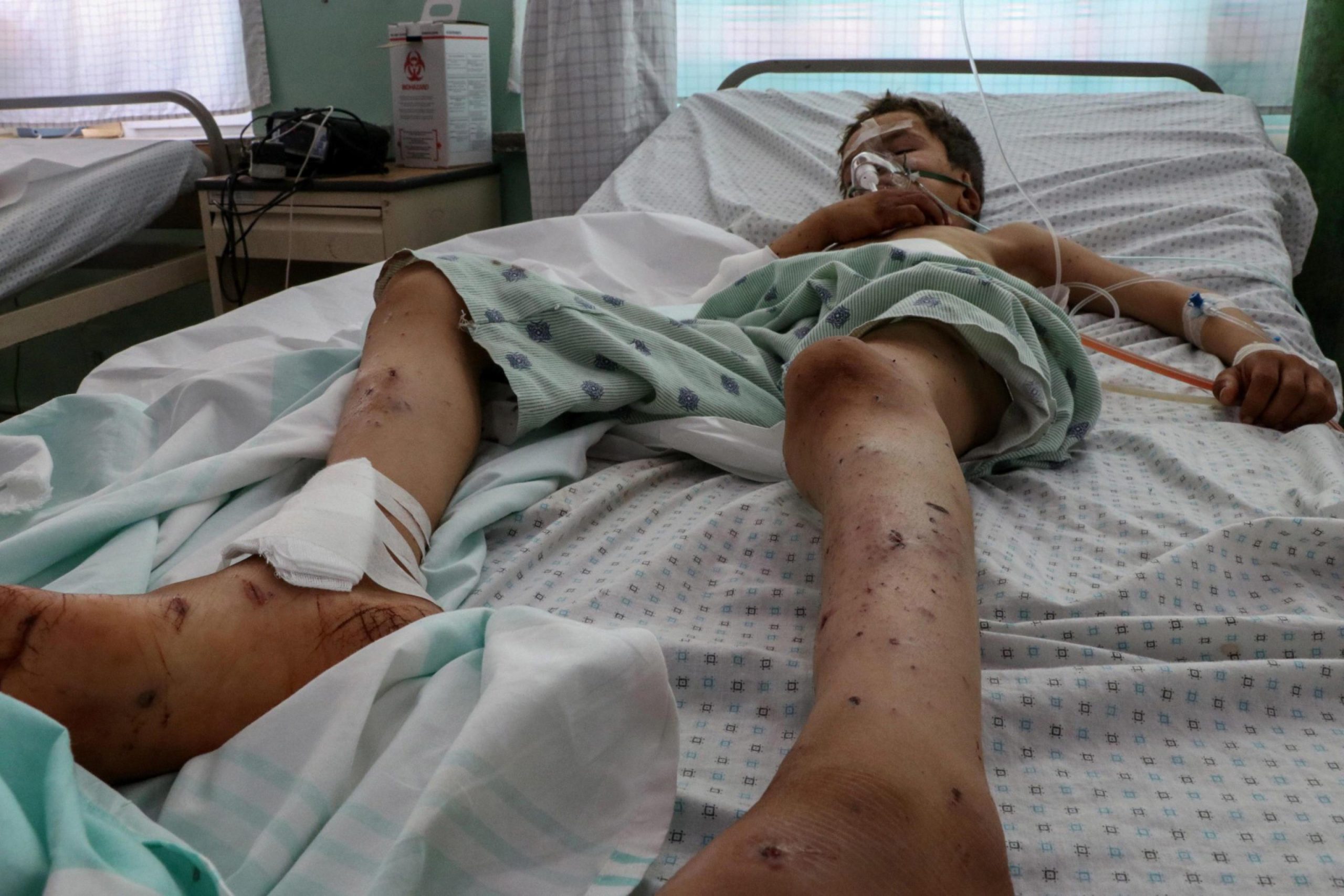Bloody Sunday in Afghanistan where the clash between the Taliban, Al Qaeda, the Haqqani network, and Isis Khorasan is becoming increasingly gory. The number of deaths caused by the bomb that exploded yesterday at the entrance of the Eid Gah mosque, the second largest in the Afghan capital, while the funeral of the Taliban spokesman’s mother, Zabihullah Mujahid, who died a few days ago, was in progress, is still uncertain.
According to some testimonies collected by the Associated Press and confirmed by Bilal Karimi, one of the official Taliban spokesman’s deputies, among the 12 dead and 32 wounded, there are not Taliban fighters but civilians who were outside the gate of the mosque that is located a few meters from the Presidential Palace and the Ministry of Defense, in the center of Kabul. There a suicide bomber named Misbah al-Qunari, according to what ISIS-K declared, managed to reach the entrance of the mosque after which he detonated the explosive belt he was wearing under his clothes.
The attack on the mosque in Kabul is only the latest bloodshed episode since the Taliban have taken power in Afghanistan and, the fact that ISIS-K has struck near the Presidential Palace proves that the Taliban, contrary to what has been declared many times, are not able to face the threat represented by the local cell of the Islamic State. Also yesterday, the Afghan broadcaster Tolo News has spread the news that in Jalalabad, a city in eastern Afghanistan, four people have died and among them, there is also Sayed Maroof Sadat, journalist and former spokesman of the Directorate for Agriculture in Nangarhar, the region on the border with Pakistan bloodied by Isis-Khorasan attacks.
Among the wounded, there would be also his son who, according to other sources, instead would be dead. At present there are no claims, however, the most credible hypothesis is that it is once again the Isis-Khorasan that already on September 18th and 19th had claimed, through its news agency Amaq, responsibility for a series of attacks, six, “against Taliban fighters in Jalalabad” that have caused, according to Amaq which has published a series of photos of a pick-up truck with a white flag of the Emirate in the rubble, “more than 35 dead and wounded”. A series of patrol vehicles and a gathering of Taliban were hit. Not even the time to take stock of the latest attacks of ISIS-K that in Charikar, in the province of Parwan, north of Kabul, there was a new attack claimed again through the agency Amaq: “Thanks to the success of Allah the Almighty, the soldiers of the Caliphate exploded yesterday an IED (improvised explosive device, ed.) on two vehicles of the Taliban militia lurking the city of Charikar’s Ofyan area, in the capital of Parwan. This caused damage to the vehicles and the death and injury of more than 10 members on board. Praise be to Allah”.
If the security in Afghanistan continues to deteriorate, the country’s fragile economic and social systems are close to the collapse, a situation that, according to the head of EU foreign policy, Josep Borrell, “Afghanistan is experiencing a serious humanitarian crisis and a socio-economic collapse is looming, which would be dangerous for the Afghans, the region, and international security”. That the situation is the one described by Borrell is clear from the numbers that tell of how retail food prices have risen by more than 50% since the Taliban took power in August, since as Tolo News reports ‘”the freezing of 9 billion dollars of Afghanistan’s assets held in the reserves of foreign central banks and the withdrawal of foreign income fuels inflation”. The already fragile banking system is also largely paralyzed, with people unable to withdraw money, while the country’s health care system -which was heavily dependent on foreign aid- is close to total collapse.
The European Union has increased its humanitarian aid to Afghanistan since the Taliban seized power, however, later on it has halted its development assistance, a move also taken by other countries and the World Bank after a series of reports were released detailing a range of human rights violations and the exclusion of girls from schools and universities. All these things have dented the incredible optimism expressed by many political figures that the Taliban’s approach could be different from when they first led Afghanistan between 1996 and 2001.
In the meantime, the cold winter is approaching in Afghanistan and risks turning into a humanitarian catastrophe with consequent mass migrations to neighboring states. Every man for himself.
Translate by Carol Simonetti

